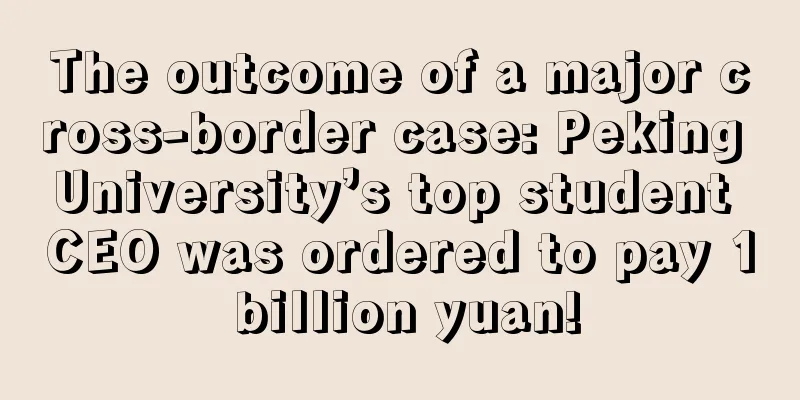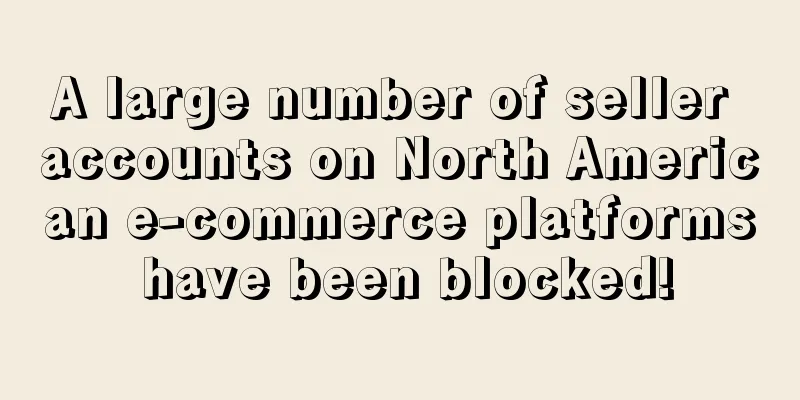New policy is coming! There are new changes in Brazilian taxation

|
With a population of 210 million, more than 60% of Internet users, and half of them using smartphones to access the Internet, online shopping in Brazil currently only accounts for 4% of retail sales. Its e-commerce potential is self-evident.
" It has great potential , strong momentum , and immeasurable future prospects , " this is how industry insiders evaluate it . In the first half of 2023, Brazil's sales soared to 120 billion yuan. The soaring sales also made more cross-border sellers set their sights on Brazil as a new growth opportunity. However, entering this market is not easy, especially in the cross-border logistics link.
Since last year, the Brazilian Federal Taxation Bureau has issued a series of normative documents, so that many cross-border sellers are unclear about the relevant policies for incoming packages and have many questions. I hope that the interpretation of the following article will help you conquer the Brazilian market.
The Brazilian Federal Internal Revenue Service has issued regulatory documents on many occasions
On December 21, 2022, the Brazilian Federal Taxation Bureau issued normative document No. RFB 2124/2022, which made specific requirements and regulations for the standardized declaration of cross-border e-commerce inbound packages. Considering that the new normative requirements involve the adjustment and upgrading of the government regulatory system and the logistics system of post offices and international express companies, the new normative document gives a transition period of 6 months and is required to take effect on July 1, 2023.
On June 29, 2023, the Brazilian Federal Taxation Bureau issued Document No. RFB 2146/2023, which determined that a 17% ICMS tax (import turnover tax) would be levied on all cross-border e-commerce packages entering Brazil from August 1, 2023.
On July 25, 2023, the Federal Internal Revenue Service issued the standard operating document DOU 130/2023, which provides normative operating instructions for the PRC (Compliance Tax Payment Plan) method for declaration and tax payment of incoming packages. Since the issuance of the operational normative document is too close to the implementation of the new policy on August 1, the Federal Internal Revenue Service and the port customs have given a buffer transition period in the specific implementation, and encouraged all e-commerce platforms to complete the application for PRC registration with the Federal Internal Revenue Service and obtain the PRC registration number within this transition period.
Since the document RFB2124/2022 came into effect on July 1, the Brazilian Federal Tax Bureau and Customs have strengthened the random inspection of the standardized declaration of incoming parcels, mainly checking the relationship between the HS Code and the declared product name and the corresponding price, and increasing the proportion of low-declared parcels that have been taxed. Therefore, since July 2023, a large number of parcels have been piled up and rolled over when the Brazilian incoming parcels were inspected at the customs clearance ports. Starting from September 1, the Brazilian Post (Correios) diverted the parcel clearance sites and added a postal customs clearance site (Ceint warehouse) in Campinas, São Paulo State, diverting the goods originally concentrated in the Ceint warehouse in Curitiba to the Ceint warehouses in the four cities of São Paulo, Rio, Campinas and Curitiba. At the same time, the customs clearance time has been changed from the previous 2 days to 7-10 days, and the logistics timeliness is slowing down.
According to the tax bureau's plan, the new policy will be launched at a new time after the PRC application transition period ends. Therefore, during this period, most e-commerce platform companies will join the PRC compliance declaration process. It is expected that in the next 2-4 weeks, a large number of e-commerce platforms and independent station companies will pass the PRC review and obtain the PRC registration number.
Regarding cross-border shipments after the launch of the new policy, there are many different versions circulating in the market. We found that there are many misunderstandings or deviations in understanding of the new policy, so it is necessary to sort it out again.
Several changes in parcel entry under the new policy
1. All parcels entering the country are subject to a 17% import turnover tax (ICMS tax); parcels with a sales price below US$50 will continue to be exempt from the 60% import comprehensive tax; parcels with a sales price of US$50-3,000 will be subject to an additional 60% import comprehensive tax; because the tax is collected after the tax is added, the actual total tax paid for parcels with a sales price of more than US$50 is 92% of the sales amount;
2. Customs has put forward more standardized declaration requirements for parcel entry declaration, including the declared currency, product name and customs code; and requires that the consignor must be an e-commerce platform or a third-party e-commerce company (the consignor must be a legal person); if the PRC tax payment model is used for delivery, the platform company's logo and the order number of the transaction are required to be on the shipping label;
3. For inbound declaration packages that join the Federal Tax Compliance Program (PRC), they can enjoy a convenient and fast customs clearance green channel. The packages can be pre-declared for customs clearance and pre-paid taxes before shipment. When the goods arrive at the customs clearance site, only the parcels that are randomly inspected need to be checked. Parcels without abnormalities will be directly transferred to the tax bureau for tax payment verification and release, which improves and speeds up the customs clearance efficiency;
4. The cross-border DDP tax payment method has been approved, completing the standardization and supplement of entry tax payment under non-PRC conditions;
5. Commercial express delivery enjoys the same tax-free entry treatment as postal customs clearance at the policy level; once the customs clearance supervision process and customs clearance site issues for express delivery entry are resolved, commercial express delivery will become the main channel for cross-border parcels, and will be optimized in terms of timeliness and price;
6. The duty-free customs clearance place for goods below 50 USD is no longer limited to Curitiba, but can be cleared at any compliant Ceint warehouse in Brazil. As a result, there will be some changes in both postal and commercial express delivery in the future.
Changes in parcel entry after joining PRC
1. Changes in compliance reporting requirements
When applying for PRC registration, cross-border e-commerce platforms must provide a full set of information on the platform entity and Brazilian agents in accordance with the requirements and rules of the Brazilian Federal Tax Bureau. There are unified regulatory requirements for entry declarations, such as the platform's order number and platform logo must be on the waybill, the shipper must be the platform or the merchant on the platform (legal entity), the declared amount must be consistent with the sales amount on the platform and the amount paid by the collection company, and there must be a corresponding relationship between the declared HS Code and the product name. A series of compliance declarations allow e-commerce transactions to be carried out in the sun, and restricted or regulated goods (such as cosmetics, baby products, health products, and 3C products involving Bluetooth, etc.) will be subject to stricter supervision.
2. Changes in tax payment methods
Under the PRC conditions, only the prepayment of taxes before shipment and the formal tax deduction model after customs clearance confirmation are accepted, that is, the tax payment stage starts from the pre-declaration stage before logistics shipment. Since the Brazilian Federal Tax Bureau has not yet prepared a system that can directly pay (deduct) taxes in the transaction stage, the logistics company's freight deduction system is currently used to pay and withhold import-related taxes. Therefore, for platforms, sellers or carriers, they need to pay this tax in advance under the new transaction conditions.
Another problem is the reconciliation of deducted taxes: Currently, the post office does not have a technical interface that can push deducted tax bills. How to solve the reconciliation problem of deducted tax bills between logistics companies and platforms or merchants is an operational difficulty that needs to be improved and resolved.
3. Customs clearance and inspection time limit
According to the new entry policy, parcels under PRC conditions can enjoy fast green customs clearance treatment when entering the country. Customs only needs to conduct a certain proportion of random inspections on incoming parcels. If there are no problems in the random inspections, they can be released quickly. If there are problems in the random inspections, the random inspection ratio will be increased. If the inspection finds low declarations, the declared name does not match the actual object, or there are contraband, the customs has the right to suspend the convenience of PRC. Compared with other modes of entry, PRC parcel customs clearance is the most convenient way;
Three ways to declare and pay taxes for parcels entering the country under the new policy
There are three tax payment modes under Brazil's new policy ( PRC, cross-border DDP and DDU). The first two tax payment modes are prepayment of taxes before shipment, where the shipping logistics carrier prepays a certain amount of taxes on behalf of the e-commerce platform or e-commerce seller before the shipment declaration, and the logistics company pays or deducts fees on behalf of the e-commerce platform or seller; the third mode is for the consignee to pay the tax after the package arrives at the customs clearance location.
Here we need to correct the common misconception in the market: the new policy is valid for all tax payment modes, not just for PRC conditions, but not for DDP or DDU. Under DDP and DDU conditions, online purchases of imported goods below $50 can also enjoy the exemption of 60% import comprehensive tax. The only difference between them is the customs clearance time limit, inspection and release methods.
1. PRC tax payment method As mentioned above, this is a compliant tax payment plan that allows the trading platform information to be filed with the government authorities. It requires the carrier to be responsible for paying the import ICMS tax and import comprehensive tax (if any) on behalf of the carrier, and can enjoy a convenient customs clearance and inspection green channel.
2. Cross - border DDP tax payment method In order to allow merchants who are unable to complete PRC registration to have their parcels released through customs smoothly under compliant tax payment, the Federal Internal Revenue Service issued a document allowing Anjun Logistics and Brazil Post (Correios) to participate in testing a new entry tax payment method. Cross-border DDP refers to a tax payment method in which a Brazilian company outside of Brazil that has a cooperation agreement with Brazil Post (Correios) or an international express company pays withholding taxes on behalf of the merchant.
Note that the conditions here are:
A. The logistics carrier responsible for tax payment should be a company outside Brazil; B. The logistics carrier needs to have a cooperation agreement with Brazil Post (Correios) or a qualified Brazilian international express company; C. The logistics carrier pays taxes on behalf of overseas e-commerce platforms or sellers. The funds should come from outside Brazil and should have foreign exchange settlement records.
The advantage of cross-border DDP is that the consignor pays the tax on behalf of the consignee, and there is no need to wait for the consignee to pay the tax before releasing the consignee during customs clearance, which speeds up the tax payment operation time, simplifies the tax payment operation process, and reduces the buyer's worries when placing an order. Compared with PRC, its disadvantage is that after the prepayment of tax, the customs needs the package to arrive at the customs clearance site before customs clearance can begin. During the customs clearance process, the post office staff needs to scan the package to confirm whether the tax has been paid, which will extend the customs clearance operation time to 4-5 days.
It should be noted that:
Cross-border DDP tax payment is different from the DDP tax payment method currently available in the market. The main difference lies in the funds and entities for tax payment. The tax payment entity for cross-border DDP is a company outside Brazil, and the funds used to pay taxes come from outside Brazil. The DDP tax payment on the market currently uses funds within Brazil to pay taxes, but the funds collected from platforms or merchants are from companies outside Brazil. Therefore, this is an illegal and non-compliant operation method, and is defined by the Federal Tax Bureau as an illegal act involving suspected money laundering.
Currently, Anjun Logistics is the first partner company authorized by the Federal Tax Bureau and the Brazilian Post (Correios) to participate in the cross-border DDP test. All tests have achieved the predetermined goals and will be put into operation in the near future.
3. DDU tax payment method The DDU tax payment method means that after the package arrives at the customs clearance site, the customs will complete the entry inspection according to the process, and enter the tax payment stage after the inspection is OK. The post office or customs clearance company will notify the consignee to complete the tax payment. After the tax payment is OK, the customs will release the package after verification. At present, before the implementation of the new policy, all methods of tax payment are DDU. The biggest problem here is how to notify the consignee in time to pay the tax. The second is that it is not known in advance whether the consignee intends to pay the tax. The third is that the time for customs clearance and waiting for tax payment is very long, so it can be expected that not many platforms will use this method after the launch of the new policy.
What are the advantages of Anjun's cross-border products under the new policy?
1. Become an agent for cross-border platforms or independent station companies registered in the Brazilian PRC
As a cross-border logistics company with several subsidiaries and more than 1,300 Brazilian employees in Brazil, we have all the qualifications and requirements for Brazilian agents that meet the Brazilian federal tax requirements for PRC registration. We can assist e-commerce platforms or cross-border independent station companies to complete PRC registration and obtain PRC registration codes, and help platforms open up a green channel for convenient and fast customs clearance;
2. Become a designated PRC logistics service provider for cross-border platforms or independent station companies in Brazil
As the largest cross-border cooperation customer of Brazil Post ( Correios) in the past three years, Anjun Logistics has a long-term strategic cooperation agreement with ECT (Brazil Post) and can become the designated logistics partner of ECT when the platform registers PRC. At the same time, Anjun Logistics' subsidiary Brazil International Express Company has the qualification of Brazil International Express Business License and can become the designated commercial express logistics service provider when the platform registers PRC;
3. We can provide cross - border PRC and cross-border DDP tax payment logistics services
As the first tax payment testing company designated by the Federal Tax Bureau and the Brazilian Post ( Correios) under PRC and cross-border DDP conditions, we have completed the tax payment system connection and process testing with the Brazilian Post and the Federal Tax Bureau. We can provide services for cross-border platform companies, independent site sellers or third-party e-commerce sellers to pay and withhold import taxes, and provide guidance services on compliance operations.
4. Can provide customs clearance, transshipment and delivery services for cross-border commercial express delivery
According to the strategic cooperation agreement signed between Anjun Logistics and GRU Airport Group of Sao Paulo, Brazil, Anjun Logistics has leased a 25,000 square meter warehouse of the International Express and International Parcel Customs Supervision Operation Center (GRU Ceint Warehouse) located near the apron at GRU Airport, and obtained the 15-year operation rights of the GRU Ceint Warehouse. It can provide commercial customs clearance or postal customs clearance sites for e-commerce platforms, cross-border independent station sellers or third-party logistics companies, and can enjoy the policy of exemption of 60% of the comprehensive import tax within US$50, and provide airport palletizing, depalletizing and bonded storage of goods and other services.
At the same time, Anjun Logistics Brazil Express has launched e-commerce express services and is establishing an e-commerce express network covering the entire territory of Brazil, providing e-commerce platform customers with one-stop services from customs clearance to delivery.
5. We can provide ground handling services and pallet assembly and disassembly services at Sao Paulo GRU Airport
Anjun Logistics' wholly-owned subsidiary, Brazil Anjun Ground Services Co., Ltd., located at GRU Airport, has an airport ground handling operation and management license and can provide charter companies, airlines or corporate shippers with airport services such as tallying, depalletizing, entry declaration, airport transfer, and abnormal piece handling at GRU Airport.
Anjun Logistics is investing heavily to build the basic operational capabilities and delivery network for cross-border logistics and local e-commerce logistics in Brazil, and is building innovative products based on customer demand, striving to provide customers with more cost-effective logistics service products while meeting the requirements of Brazil's new policies.
On the journey to Brazil, Anjun always accompanies the sellers. Sellers who have been deeply involved in the Brazilian market can click below to read the original text and join hands with Anjun to conquer this fertile land of Brazil! Brazil An Jun Taxation |
>>: The founder of Shenzhen’s billion-dollar unicorn company was “dismissed”!
Recommend
India cancels anti-dumping duties on some steel products
In its 2021 fiscal budget , the Indian government...
What is Global Trading Assistant & Global Trading Assistant Review
Global Trading Assistant is a third-party store m...
What is Saleku? Saleku Review, Features
The core team of Saleku has more than ten years of...
Suez Canal is blocked again! Cainiao and AliExpress jointly launch merchant subsidies
In two weeks, the Suez Canal, the "main arte...
Infringement warning! Nearly 100 sellers have been cheated, and some have had millions of dollars frozen
The bad mood of the day starts when I find out my...
Another Shenzhen cross-border company's listing was terminated! It once sold nearly 2 billion yuan of goods a year
Recently, news came from the cross-border e-comme...
I am speechless...A book seller received an email with food issues?
After working at Amazon for a long time, you can ...
Etsy and Facebook will provide badges for high-quality sellers, but sellers are not buying it?
Following eBay and Etsy, Facebook is also launchi...
Amazon Handmade to open 'Made in Mexico' store
Amazon Handmade is a handmade platform launched b...
Cross-border e-commerce digital API platform Doushabao Technology reaches cooperation with Shopee
Recently, the cross-border e-commerce digital API...
What is Vmmask? Vmmask Review, Features
The Vmmask browser program simulates manual operat...
Amazon may recall products on sale! Involving multiple brands and more than ten ASINs
Recently, the U.S. Consumer Product Safety Commis...
What is CM? CM Review, Features
CM is a leading global provider of conversational...
Victoria, Australia, is "locked down" for 5 days, and the UK plans to impose the world's first "snack tax"
eBay owns nearly one-third of Germany's top 5...









